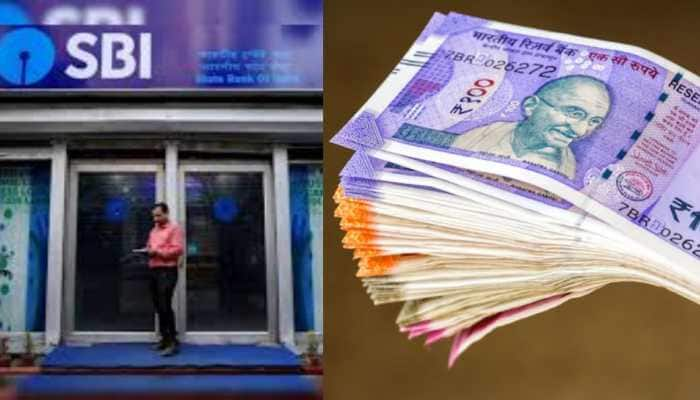Growth, fiscal discipline to be focus of Chidambaram's 8th budget
Adding to the finance minister's woes is the threat of ratings downgrade by global agencies.
Trending Photos
)
New Delhi: Given the state of the Indian economy, Finance Minister P. Chidambaram is most likely to unveil concrete measures to revive growth and ensure fiscal discipline in the union budget to be presented Feb 28, economists and analysts believe.
Chidambaram will present the budget at a time when the economy is growing at its slowest pace in a decade. The current account deficit has hit a record high and the fiscal deficit has been on a cliff. Also, inflation is much above the comfort level and infrastructure bottlenecks continue to hinder growth and investments.
Adding to the finance minister's woes is the threat of ratings downgrade by global agencies.
"We are expecting some concrete measures to revive growth. Widening deficit is a huge challenge. The current account deficit is particularly more worrisome. Tough measures are needed to ensure fiscal consolidation," said Anis Chakravarty, senior director, Deloitte in India.
Chakravarty said the government has made some genuine efforts in the past few months to improve investors' sentiments, but a lot more needed to be done.
According to the Central Statistics Office (CSO), India's gross domestic product (GDP) is expected to grow at five percent in the financial year ending March 31. This will be the worst performance of the Indian economy since 2002-03 when the growth was recorded at fourpercent.
This will be Chidambaram's eighth budget, the second most after Morarji Desai, who has 10 budgets to his credit. Pranab Mukherjee, Yashwant Sinha, Y.B. Chavan and C.D. Deshmukh have presented seven budgets each.
Although some analysts and policy makers - as also Chidambaram - expect the growth to be higher than the CSO estimate at around 5.5 percent, the optimism offers little comfort considering an average of nearly eight percent growth recorded in the past 10 years.
In the budget for 2012-13 presented last March, then finance minister Pranab Mukherjee had pegged the growth at 7.6 percent. So it is clear that the actual growth this fiscal will be much lower than what was estimated.
"We hope that the union budget will be pro-growth and give a renewed thrust to capital formation," said Naina Lal Kidwai, president, Federation of Indian Chambers of Commerce and Industry (FICCI).
India's current account deficit reached a record high of USD 22.4 billion or 5.4 percent of the GDP in the July-September quarter of 2012-13, according to the latest data available with the Reserve Bank of India (RBI).
The current account deficit has widenedbecause of high merchandise trade deficit, which reached USD 167.16 billion in the first 10 months of current fiscal, largely due to high imports of petroleum products and gold.
Considering the trade deficit and other data, the current account deficit is expected to befive percent of the GDP in the financial year ending March 31 as compared to 4.2 percent recorded in the previous year.
The government has scaled up the fiscal deficit target at 5.3 percent of the GDP as against the budgetary estimate of 5.1 percent. Fiscal deficit soared to 5.8 percent of GDP in 2011-12 against the government's target of 4.6 percent, prompting threats of a rating downgrade from global agencies like Standard & Poor's and Fitch.
Both Standard & Poor's and Fitch have assigned BBB minus ratings to India, the lowest investment grade ratings. A downgrade would take the country's credit ratings to junk status, making overseas borrowings difficult and costlier. It would adversely impact the Indian currency and capital inflows both for the government and the corporate sector, thus aggravating the situation of current account deficit.
According to Angel Broking, Chidambaram is likely to announce tough steps in the budget to curb the fiscal deficit and any populist measures might come later during the year, closer to the general election.
Chidambaram is likely to announce incentives to boost savings and channelise households' savings into financial sectors, away from non-productive physical assets like gold, which is also adding to the current account deficit.
"A positive budget will help in streamlining the economy and provide impetus to the GDP growth," said Pranay Dhabhai, managing director, Akai India.
Dhabhai emphasised on the need for bringing stability in the tax regime.
He said any clear direction regarding the implementation of the goods and services tax (GST) regime would send a positive signal to investors and the markets.
IANS
Chidambaram will present the budget at a time when the economy is growing at its slowest pace in a decade. The current account deficit has hit a record high and the fiscal deficit has been on a cliff. Also, inflation is much above the comfort level and infrastructure bottlenecks continue to hinder growth and investments.
Adding to the finance minister's woes is the threat of ratings downgrade by global agencies.
"We are expecting some concrete measures to revive growth. Widening deficit is a huge challenge. The current account deficit is particularly more worrisome. Tough measures are needed to ensure fiscal consolidation," said Anis Chakravarty, senior director, Deloitte in India.
Chakravarty said the government has made some genuine efforts in the past few months to improve investors' sentiments, but a lot more needed to be done.
According to the Central Statistics Office (CSO), India's gross domestic product (GDP) is expected to grow at five percent in the financial year ending March 31. This will be the worst performance of the Indian economy since 2002-03 when the growth was recorded at fourpercent.
This will be Chidambaram's eighth budget, the second most after Morarji Desai, who has 10 budgets to his credit. Pranab Mukherjee, Yashwant Sinha, Y.B. Chavan and C.D. Deshmukh have presented seven budgets each.
Although some analysts and policy makers - as also Chidambaram - expect the growth to be higher than the CSO estimate at around 5.5 percent, the optimism offers little comfort considering an average of nearly eight percent growth recorded in the past 10 years.
In the budget for 2012-13 presented last March, then finance minister Pranab Mukherjee had pegged the growth at 7.6 percent. So it is clear that the actual growth this fiscal will be much lower than what was estimated.
"We hope that the union budget will be pro-growth and give a renewed thrust to capital formation," said Naina Lal Kidwai, president, Federation of Indian Chambers of Commerce and Industry (FICCI).
India's current account deficit reached a record high of USD 22.4 billion or 5.4 percent of the GDP in the July-September quarter of 2012-13, according to the latest data available with the Reserve Bank of India (RBI).
The current account deficit has widenedbecause of high merchandise trade deficit, which reached USD 167.16 billion in the first 10 months of current fiscal, largely due to high imports of petroleum products and gold.
Considering the trade deficit and other data, the current account deficit is expected to befive percent of the GDP in the financial year ending March 31 as compared to 4.2 percent recorded in the previous year.
The government has scaled up the fiscal deficit target at 5.3 percent of the GDP as against the budgetary estimate of 5.1 percent. Fiscal deficit soared to 5.8 percent of GDP in 2011-12 against the government's target of 4.6 percent, prompting threats of a rating downgrade from global agencies like Standard & Poor's and Fitch.
Both Standard & Poor's and Fitch have assigned BBB minus ratings to India, the lowest investment grade ratings. A downgrade would take the country's credit ratings to junk status, making overseas borrowings difficult and costlier. It would adversely impact the Indian currency and capital inflows both for the government and the corporate sector, thus aggravating the situation of current account deficit.
According to Angel Broking, Chidambaram is likely to announce tough steps in the budget to curb the fiscal deficit and any populist measures might come later during the year, closer to the general election.
Chidambaram is likely to announce incentives to boost savings and channelise households' savings into financial sectors, away from non-productive physical assets like gold, which is also adding to the current account deficit.
"A positive budget will help in streamlining the economy and provide impetus to the GDP growth," said Pranay Dhabhai, managing director, Akai India.
Dhabhai emphasised on the need for bringing stability in the tax regime.
He said any clear direction regarding the implementation of the goods and services tax (GST) regime would send a positive signal to investors and the markets.
IANS
Stay informed on all the latest news, real-time breaking news updates, and follow all the important headlines in india news and world News on Zee News.
Advertisement
Live Tv
Advertisement







)
)
)
)
)
)
)
)
)
)
